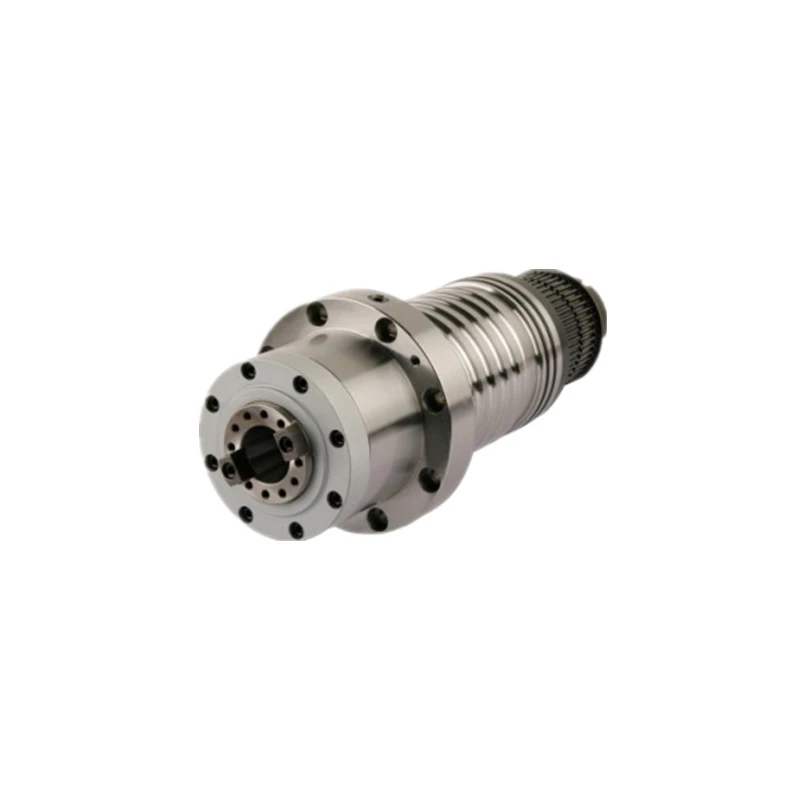12 月 . 04, 2024 09:30 Back to list
controlador lógico programable modular
Understanding Modular Programmable Logic Controllers (PLCs)
In the realm of industrial automation, programmable logic controllers (PLCs) are pivotal to the seamless operation of manufacturing processes and machine control systems. Among the various types available, modular PLCs stand out due to their versatility, scalability, and ease of integration. This article explores the fundamental aspects of modular PLCs, including their configuration, advantages, applications, and future trends.
What Are Modular PLCs?
Modular PLCs are systems designed with a flexible architecture enabling users to customize their setup according to specific operational needs. Unlike fixed-architecture PLCs, which come with a set number of inputs and outputs (I/O), modular PLCs allow for the addition or removal of I/O modules based on the requirements of the application. This modularity ensure that manufacturers can adapt to changing production demands without needing to invest in entirely new systems.
At the heart of a modular PLC is its central processing unit (CPU), which manages all the operations. Users can expand the system by adding various modules that provide additional I/O capabilities, communication ports, specialty functions like analog input/output, and even advanced processing units. This means that a modular PLC can start small and grow as an organization expands or modifies its production processes.
Advantages of Modular PLCs
1. Scalability One of the primary benefits of modular PLCs is their scalability. Companies can begin with a smaller configuration and increase their capabilities by adding modules as their operational needs grow.
2. Flexibility Modular PLCs can easily be tailored to meet specific application requirements. Users can select different types of I/O modules, communication tools, and even processors based on real-time needs, which helps in effective resource management.
3. Cost-Effectiveness While the initial investment in a modular PLC might be higher compared to fixed-architecture options, the ability to upgrade incrementally over time can lead to significant savings. Companies pay only for the functionality they require when they require it, reducing waste.
controlador lógico programable modular

4. Ease of Maintenance In a modular PLC, individual modules can be replaced or upgraded with minimal impact on the overall system. This feature not only simplifies maintenance but also ensures that downtime is kept to a minimum during repairs or upgrades.
5. Improved Performance With advanced processing capabilities and the ability to handle multiple tasks simultaneously, modular PLCs can significantly enhance operational performance. Their design often supports real-time processing, which is critical in many industrial applications.
Applications of Modular PLCs
The versatility of modular PLCs allows them to be used in a wide range of industries and applications. Common uses include assembly lines in automotive manufacturing, food processing systems, packaging and bottling plants, and complex material handling systems. Additionally, modular PLCs are increasingly employed in building automation systems, such as HVAC controls, lighting management, and security systems.
In the energy sector, these systems are integral to managing renewable energy sources and smart grid applications, enabling real-time data collection and processing. Moreover, modular PLCs are ideal for applications requiring remote monitoring and control, as they can be easily configured to support a range of communication protocols.
The Future of Modular PLCs
As technology continues to evolve, the future of modular PLCs looks promising. Developments in software, cybersecurity, and the Internet of Things (IoT) are driving innovation in this field. The integration of IoT with modular PLCs is particularly significant; it enables real-time data analytics and remote monitoring, providing manufacturers with insights that can streamline operations, enhance decision-making, and improve product quality.
Moreover, as industries move toward Industry 4.0, the demand for intelligent and interconnected systems will rise, positioning modular PLCs as a critical component in the smart factories of tomorrow.
In conclusion, modular programmable logic controllers offer a dynamic solution for industrial automation, marrying flexibility with robust performance. Their ability to adapt to changing needs and integrate with emerging technologies ensures that they will remain a cornerstone of manufacturing and control systems in the years to come. As industries continue to evolve, embracing modular PLCs will undoubtedly be key to sustaining competitiveness in a global marketplace.
-
Why Steel Mills Rely on FODA’s High-Temperature Cylindrical Roller Bearings?
NewsApr.10,2025
-
What is a Plain Bearing? A Complete Guide to Design & Functionality
NewsApr.10,2025
-
Thrust Ball Bearings vs. Tapered Roller Bearings: FODA’s Performance Comparison
NewsApr.10,2025
-
The Engineering Behind FODA Thrust Ball Bearings: Precision for High-Speed Applications
NewsApr.10,2025
-
No More Compromises: Get Precision-Engineered Custom Bearings Tailored to Your Exact Specifications
NewsApr.10,2025
-
In-Depth Analysis: Application Differences of Different Types of Angular Contact Ball Bearings
NewsApr.10,2025
Products categories
















